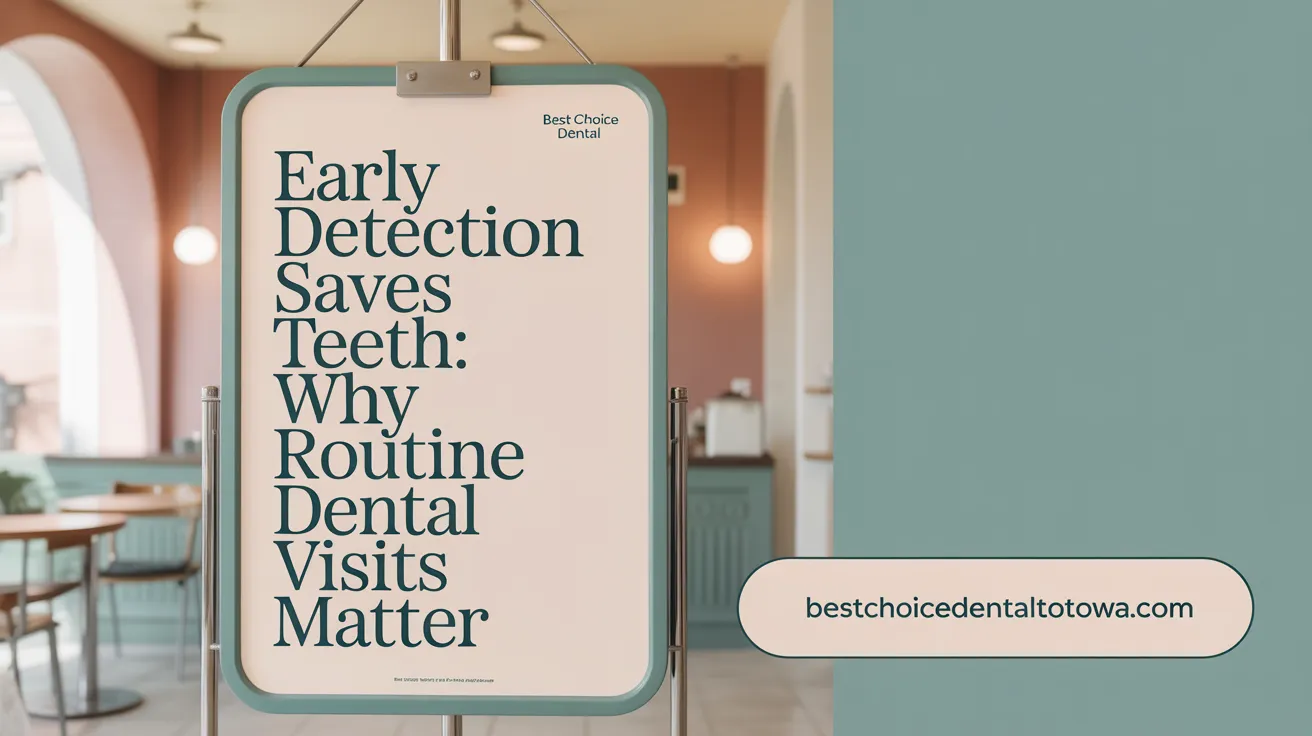Understanding the Essentials of Regular Dental Check-Ups
Regular dental check-ups are key to maintaining a healthy smile and preventing oral health issues. Knowing what to expect during your visit can alleviate anxiety, help you prepare, and ensure you gain the maximum benefit from your appointment. This article outlines the steps involved in a typical dental check-up, why routine visits matter, how often you should schedule them, and practical tips for preparation.
<!-- VIDEO:eyJsaW5rIjoiaHR0cHM6Ly93d3cueW91dHViZS5jb20vd2F0Y2g/dj1td3RMUGtQSmd3USIsImltYWdlVXJsIjoiaHR0cHM6Ly9lbmNyeXB0ZWQtdnRibjAuZ3N0YXRpYy5jb20vdmlkZW8/cT10Ym46QU5kOUdjUTd6bV9LaEoxMEkwMkltWTR1TU90Uk9OeFJiNDBaSW1tYV9nIiwidGl0bGUiOiJXaGF0IHRvIEV4cGVjdCBGcm9tIGEgRGVudGlzdCBDaGVjayBVcCIsInNuaXBwZXQiOiJOZXJ2b3VzIGFib3V0IHlvdXIgbmV4dCBkZW50aXN0IGFwcG9pbnRtZW50PyBJbiB0aGlzIHZpZGVvLCB3ZSB3YWxrIHlvdSB0aHJvdWdoIGV4YWN0bHkgd2hhdCBoYXBwZW5zIGR1cmluZyBhIHJvdXRpbmUgZGVudGFsIGNoZWNrLXVwLiJ9 -->Step-by-Step Procedures in a Dental Check-Up

Initial patient check-in and review of medical history
A dental check-up begins with the patient arriving at the clinic, where staff helps with check-in and updates medical history. The dental team asks about recent health issues, medications, and oral hygiene routines. This step helps the dentist plan the exam and identify potential health concerns.
Professional teeth cleaning by a hygienist
Next, a hygienist or certified dental assistant performs a thorough cleaning. They remove plaque and tartar from teeth using special instruments, including electric scalers for scaling. The hygienist also polishes the teeth, flosses, and may apply fluoride or sealants as needed. This cleaning not only leaves teeth smooth but also helps prevent decay and gum disease.
Use of X-rays to detect hidden dental issues
Depending on the patient's history and age, X-rays may be taken during the visit. These images help reveal issues not visible to the naked eye, such as cavities between teeth, bone loss, cysts, or abscesses. During X-ray procedures, patients wear protective aprons, and the images are captured quickly and safely, offering a detailed view of teeth, jawbone, and other oral structures.
Comprehensive oral examination by the dentist
Following cleaning and imaging, the dentist conducts a detailed visual and tactile examination. Using mirrors and lights, they check for decay, gum health, soft tissue abnormalities, and signs of oral cancer. The doctor also assesses the bite, existing dental work, and overall mouth health. This step allows early detection of potential issues.
Discussion of findings and treatment recommendations
At the end of the appointment, the dentist discusses the results with the patient. They review any problems detected, such as cavities or gum disease, and suggest treatments or preventive measures. The dentist may advise on better oral hygiene habits, schedule follow-up visits, or refer to specialists for advanced care. Throughout, open communication helps ensure understanding and comfort.
| Step | Description | Additional Details |
|---|---|---|
| Check-in | Update medical history and review health concerns | Ensures tailored exam and safety precautions |
| Cleaning | Removal of plaque and tartar, polishing | Boosts oral health and comfort |
| X-rays | Detect hidden dental issues | Use of protective gear and quick imaging process |
| Oral exam | Visual and tactile assessment | Check for decay, gum disease, and abnormal growths |
| Discuss & plan | Review findings, treatment options | Emphasizes preventive care and patient involvement |
What to Expect During Your Dental Visit
 A typical dental appointment begins with a review of your medical and dental history. You may be asked to fill out a questionnaire and discuss any recent oral health concerns, symptoms, or ongoing treatments. This step helps your dentist understand your overall health and tailor care accordingly.
A typical dental appointment begins with a review of your medical and dental history. You may be asked to fill out a questionnaire and discuss any recent oral health concerns, symptoms, or ongoing treatments. This step helps your dentist understand your overall health and tailor care accordingly.
Next, the dental team conducts a comprehensive examination of your mouth. This includes inspecting your teeth, gums, soft palate, throat, and neck for any abnormalities. The dentist may also perform an oral cancer screening by examining the lips, tongue, and other soft tissues, often using special lights to detect any suspicious areas.
If necessary, dental X-rays are taken to visualize issues not visible to the naked eye, such as early cavities, impacted teeth, or jawbone problems. These images are crucial for diagnosing underlying conditions and planning treatment.
A professional cleaning by a dental hygienist is a vital part of the visit. This process involves removing plaque and tartar buildup from teeth surfaces using special tools, followed by polishing the teeth to smooth their surfaces and make them less prone to plaque accumulation. Fluoride treatments or sealants may be applied to strengthen your teeth and protect against decay.
After completing the exam and cleaning, the dentist reviews all findings with you. This includes discussing the health status of your teeth and gums, any signs of disease, and potential treatment options if issues are detected. The dentist may recommend procedures such as fillings, crowns, or periodontal therapy.
Finally, the dentist or hygienist will talk about proper oral hygiene habits and answer any questions you might have. If additional treatments are needed, appointments will be scheduled. Regular visits—at least once a year—are essential for maintaining oral health, preventing problems, and catching small issues before they develop into more serious conditions.
The Importance and Benefits of Routine Dental Check-Ups

Why are routine dental check-ups important, and what benefits do they provide?
Routine dental check-ups are vital for maintaining good oral health and catching problems early, often before symptoms are apparent. During these visits, a dentist performs a comprehensive exam that includes checking teeth, gums, soft tissues, and the neck for abnormalities.
A professional cleaning by a hygienist removes plaque and tartar that regular brushing and flossing might miss. This process helps lower the risk of cavities, gum disease, and irritation. When needed, X-rays are taken to uncover hidden issues like cavities between teeth, bone loss, or cysts, providing a complete picture of oral health.
Detecting problems early can prevent more serious, costly treatments later. Dentists also offer advice tailored to each patient’s habits, such as smoking, diet, and teeth grinding, and suggest cosmetic or restorative procedures if needed.
Beyond oral health, routine check-ups have broader health benefits. Studies show that gum disease and other oral conditions are linked to systemic health issues like heart disease, diabetes, and stroke.
In summary, regular dental visits help maintain a healthy smile, reduce discomfort and the need for extensive treatments, and support overall well-being. Most people benefit from check-ups every six months, though intervals may vary based on individual risk factors.
Engaging in these preventive measures not only keeps teeth and gums in good shape but also promotes a healthier body overall, emphasizing the importance of making routine dental check-ups a regular part of health care.
Preparing for Your Dental Check-Up: Tips for a Smooth Visit
Scheduling a dental check-up ahead of time helps ensure you get a convenient appointment and allows you to prepare properly.
Before your visit, it’s advisable to brush and floss your teeth thoroughly. A clean mouth makes it easier for the dentist and hygienist to assess your oral health and perform a more accurate examination.
Remember to bring your medical and dental history, current medications, and insurance information. Having these details ready can streamline the check-in process and ensure your records are up to date.
If you experience dental anxiety or have specific concerns, communicate these to your dental provider beforehand. Bringing distractions like music or asking for a calm environment can help ease nerves.
Arriving at the clinic early gives you time to relax, fill out any necessary paperwork, and prepare questions about your oral health, potential treatments, or habits.
By following these simple steps, you’ll contribute to a smoother, more comfortable dental check-up experience, helping you maintain good oral health and address any problems early on.
For more detailed tips, search using the phrase "how to prepare for dental check-up."
Scheduling Your Dental Examinations: How Often Should You Visit?

How often should I schedule regular dental examinations?
Most dental professionals recommend visiting the dentist for a check-up every six months. This biannual schedule allows for thorough monitoring of your oral health, early detection of issues like cavities, gum disease, and oral cancer, which often develop silently in their initial stages.
Even if you practice excellent oral hygiene at home, regular visits are essential since certain dental problems can progress unnoticed without symptoms. Early detection facilitates easier, less invasive, and usually less costly treatment.
However, the ideal interval between dental visits may vary based on your individual health profile. Factors such as existing dental conditions, lifestyle habits like smoking or diet, medical health issues such as diabetes, and genetic predispositions influence how frequently you should see your dentist.
People with higher risks might need to schedule appointments more frequently—every three to four months—while others with stable oral health could safely extend visits up to once a year.
Your dentist can help you determine the appropriate schedule tailored to your specific needs. Following their guidance ensures optimal oral health management and reduces long-term dental problems.
| Frequency | Who It’s For | Reasoning |
|---|---|---|
| Every 6 months | Most individuals | Early detection, routine monitoring |
| Every 3-4 months | High-risk patients | Manage ongoing or past oral health issues |
| Annually | Those with excellent oral health | Maintenance and catch-up on potential problems |
| Based on dentist’s advice | All individuals | Personalized care, risk factors consideration |
Regularly scheduled check-ups are a vital part of preventive dental care. They not only help prevent complex dental issues but also support overall health, given the links between oral health and conditions like heart disease, high blood pressure, and diabetes.
Additional Insights: Beyond the Basic Check-Up
Use of protective measures during X-rays
X-ray procedures are a routine part of dental check-ups and play a crucial role in detecting problems not visible during an exam. To ensure patient safety, protective lead aprons and thyroid collars are used to shield the body from unnecessary radiation exposure. Modern digital X-rays also emit lower levels of radiation compared to traditional film X-rays.
Screenings for oral cancer, blood pressure, and sleep disorders
During a dental visit, doctors perform several screenings to assess overall health. This includes an oral cancer screening, which involves visually examining lips, tongue, throat, and soft tissues for any abnormalities or lesions. Blood pressure checks are also common, especially for patients with cardiovascular risks. Additionally, some dentists screen for sleep disorders like sleep apnea, which can often be diagnosed through a combination of patient history and physical observations.
Advice on maintaining daily oral health
Regular checkups are complemented by daily home care habits. Dentists advise brushing twice daily with fluoride toothpaste, flossing daily to remove plaque between teeth, and maintaining a healthy diet low in sugar. Avoiding tobacco and limiting alcohol consumption also benefit oral health and reduce the risk of oral cancers. Consistent care helps prevent issues such as cavities, gum disease, and erosion.
Addressing dental anxiety and special considerations for children
Many patients experience dental anxiety, which can be managed through open communication, scheduling at less busy times, and bringing distractions like music. For children, positive reinforcement, familiar routines, and comfort items can help make visits less intimidating. Special tips are provided for children with autism or developmental needs, such as frequent breaks, visual aids, and involving parents in preparation. Creating a welcoming environment encourages regular dental visits for all ages, fostering lifelong oral health habits.
Maintaining Optimal Oral Health Through Routine Care
Regular dental check-ups play a vital role in preserving oral health and overall well-being. Understanding the procedures involved, the importance of timely visits, and preparing adequately can transform the experience from daunting to empowering. By adhering to recommended schedules and communicating openly with dental professionals, patients ensure early detection of issues and receive personalized care that supports a lifetime of healthy smiles.
References
- What Happens During a Dental Check-Up?
- Dental checkups: What to expect and why they're important
- How to Prepare for a Routine Dental Appointment
- Dental Exam: MedlinePlus Medical Test
- Dental Checkup Expectations: Needham, Bedford, Franklin ...
- Dental check-ups
- Dental exams & checkups: What to expect, costs, and more
- What To Expect When You Visit Your Dentist
- What To Expect at Your Dental Check-up
- The importance of regular dental visits
